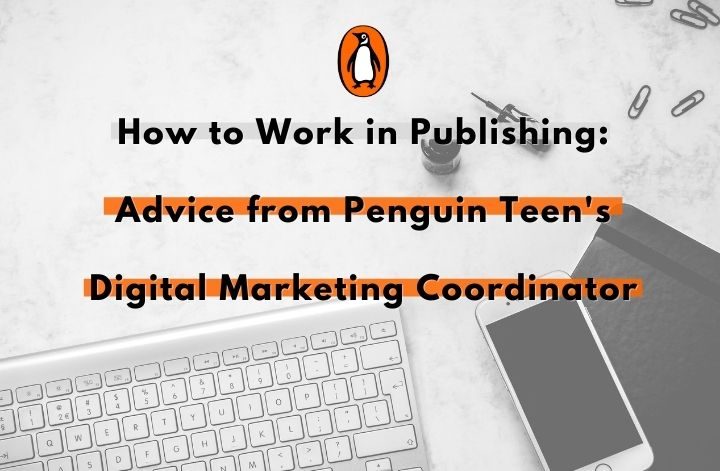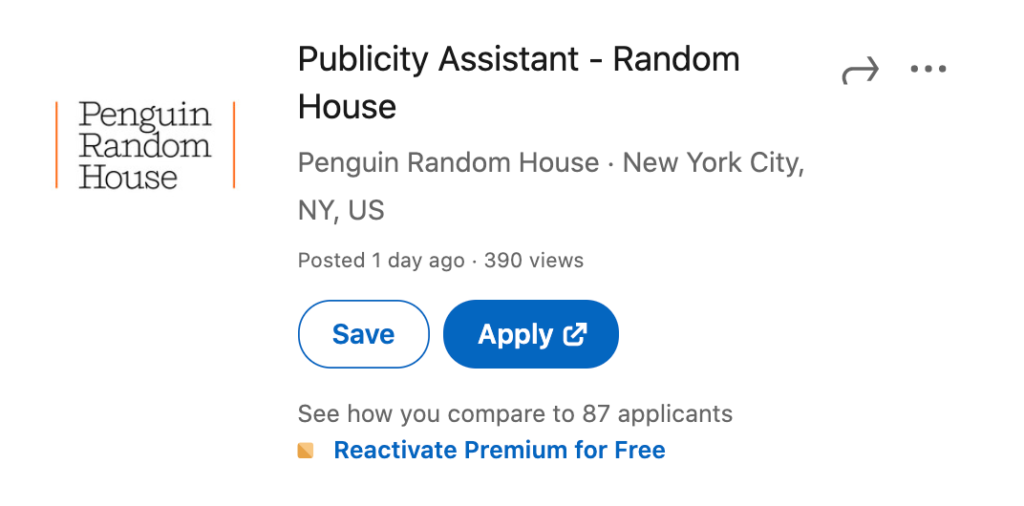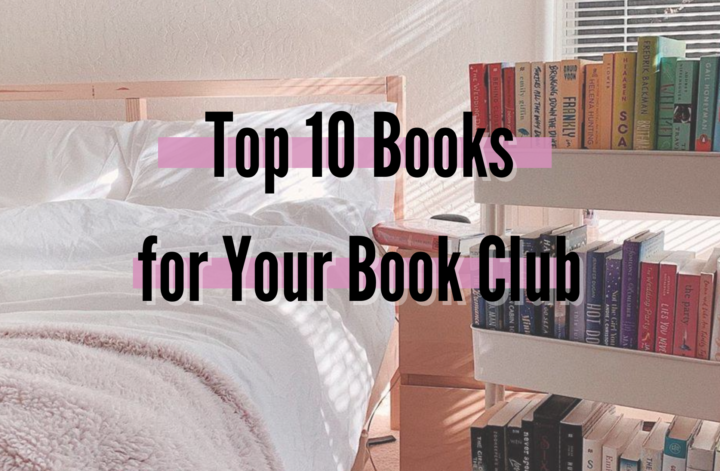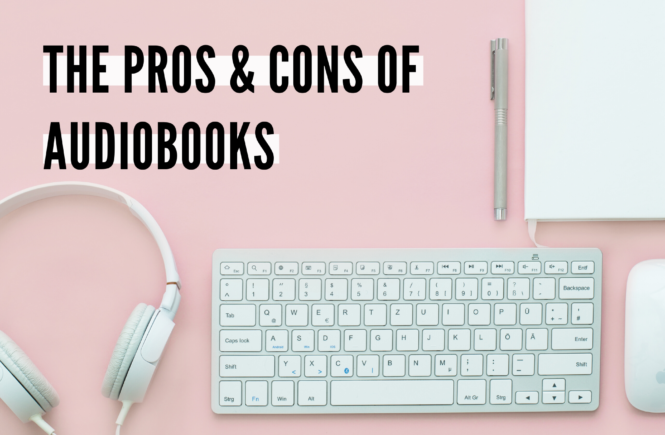If you’ve ever wanted to learn how to work in publishing or find out how to get a publishing job, here are some publishing tips from James Akinaka, Digital Marketing Coordinator for Penguin Young Readers.
He supports Penguin Teen’s social media channels while also overseeing the YA Influencer Program with Bookstagrammers, BookTubers, and BookTokers.
If publishing is your dream career and you’d love to work with books all day, read on to learn how to get a publishing job. Besides, who doesn’t want to get paid to read books?
★ FOR YOU: How to Succeed on Bookstagram
Page Contents
How did you get into the publishing industry?
The publishing industry tends to value internship experience in prospective job applicants—so if you’re looking to work in publishing, internships are a helpful place to start. After I graduated from undergrad, I moved to New York City and did a few internships in different parts of publishing. I interned at a couple independent publishers and a literary agency before I eventually came to Penguin Young Readers.
What made you want to work in publishing?
I’ve always been a reader at heart. I majored in English in college, so when it came time to figure out what kind of career I wanted to pursue, publishing rose to the top of my list. Now that I’m part of the book community, I’m grateful to be able to bring books to market and help them reach readers.
I wish that publishers would invest more resources in recruiting from colleges across the country (not only in New York City, where most of publishing is based) and also giving presentations at high schools, because it would be awesome if more kids and teens knew that it’s possible to make a career out of working on books! I’m biased of course, but I love coming to work at a place where I get to connect with other book lovers and readers.
What do you love about publishing?
I find it extremely rewarding to work on children’s books, because our work plays a role in promoting literacy and fostering readers among kids and teens. As a YA reader myself, I love finding creative ways to help both teen and adult readers find their next favorite YA book. I didn’t start actively reading YA until after college (partly because I was burned out from reading for my English classes), so I’m glad to have a job where I can work with the next generation of YA readers.
There are perks, too. You can bet that when the manuscript for A Sky Beyond the Storm by Sabaa Tahir arrives in my email inbox soon, I’ll be taking some time to *ahem* do some “work-related” reading.
What are some tips for getting into publishing?
- Start learning about the different departments within publishing. There are a number of fields that you can work in: Editorial, Cover Design, Production, Sales, Publicity, and Marketing, just to name a few. My friend Zakiya, who also works in publishing, is currently hosting an awesome IGTV series called In the Books, where she interviews people who work in different departments throughout the industry. Check out the IGTV series on her Instagram here.
- Set up informational interviews with people who work in publishing. Networking is a critical part of breaking into publishing. It’s even more important now that publishers are working remotely during the ongoing pandemic, which can make it harder to meet people in publishing—but it’s not impossible!
- Set up informational interviews with publishing people to learn about what they do, how the industry works, and what their career trajectory has been like. If you’re currently in college or are a recent grad, tap into your school’s alumni network to look for that first connection. Maybe even think about dropping into someone’s Twitter DMs to ask for an informational interview, if they’re someone whom you think would be worth chatting with.
How can people break into the publishing industry?
- Apply for internships. Internships are meant to help you learn about what department(s) within publishing you’d like to step into. They can also help you build professional relationships with people in publishing whom you might later ask to serve as your job references for full-time positions.
- Once you’ve started an internship, be proactive about connecting with different employees at the company and talking with them about what they do. Due to the pandemic, some publishers have also begun to offer remote internships, which means that you can get internship experience even if you’re based in other parts of the U.S. besides New York City.
- Do thorough research about each job position that you apply for. While most entry-level positions don’t require prior experience, recruiters and hiring managers want to see that you’ve done your research about the role, as well as the team that you’d be joining. If you’re applying for an Editorial Assistant position, be ready to identify the specific books and authors you’d be working with.
- If you’re applying for a marketing position, make sure you know what type of marketing you’d be doing, because there’s more than one type! I once lost out on a position in Trade Marketing (which handles consumer advertising) because in my interview, I asked a question that was more related to Digital Marketing (which handles social media). Be as thorough as you can to set yourself up for a successful application and interview.
If you’re looking for help on how to write a cover letter for a job application (hint: always include a cover letter in your application!), The Muse has plenty of helpful posts in their Career Advice portal.
What are common entry-level publishing jobs?
Publishing is an apprenticeship-based industry, which means that most people join the industry in entry-level assistant positions.
Because of that, entry-level assistant positions are offered throughout the different departments: Editorial, Cover Design, Production, Sales, Publicity, and Marketing, among others. As you acquire more experience, you’ll be able to move up within the industry.
What do you wish people knew about the publishing industry?
Publishing has severe access problems. The Big Five— Penguin Random House, Hachette, HarperCollins, Simon & Schuster, and Macmillan—are based in New York City along with the majority of all U.S. publishers.
In the past, this has meant that publishers would only consider NYC-based applicants for both internships and full-time roles. (I personally didn’t get a single interview for a publishing internship until I moved to New York City. It wasn’t until I had a NYC address on my résumé that I started getting interviews.) As a result, the applicant pool for publishing has not been racially or socioeconomically diverse.
Now that the COVID-19 pandemic has led publishers to transition to working from home, it’s my hope that publishers consider remote work as a long-term option. Most job functions within publishing have proven over the past six months that they can complete their work remotely.
That being said, most publishers are operating under the expectation that current and new employees will return to working in person in New York City (or wherever their offices are based) once the pandemic is over, so that is something you should take into account if you’re thinking about entering publishing.
Moreover, these access problems have a pronounced effect on BIPOC people within publishing. Publishing remains 76% white, according to the most recent Lee & Low Diversity Baseline Survey, and publishers are still reckoning with their shortcomings in not hiring or retaining enough BIPOC staffers. Having an inclusive work force is paramount to creating books that are truly representative of the world we live in, but most publishers haven’t yet achieved that.
Thankfully, there are a number of resources for BIPOC people who are looking to enter the industry: People of Color in Publishing, which supports, empowers, and uplifts racially and ethnically marginalized members throughout the industry with networking opportunities and resources; Representation Matters Mentoring Program, which pairs BIPOC mentees with mentors who can help them learn about, and get a foothold in, the industry; and We Need Diverse Books, which provides Internship Grants to children’s (and soon, adult) publishing interns from diverse backgrounds.
Whether or not you identify as BIPOC, use every resource that you can to work toward breaking into publishing.
Anything else you’d like to add?
Thanks for having me, Yuki! My Twitter DMs are always open for anyone who’s interested in chatting about how to get into publishing—I’m @JamesAkinaka on Twitter. Publishing is my dream job, and if it’s yours too, then I wish you the best of luck making it happen!
How to work in publishing — a Q&A with James Akinaka from Penguin Teen
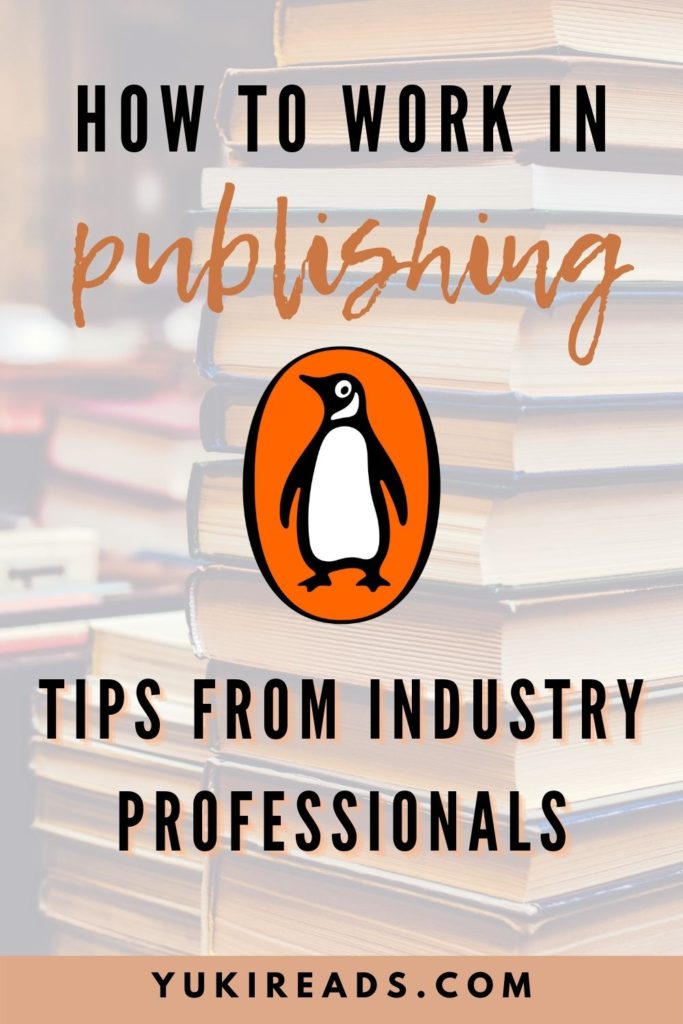
👉 Pin for later: pin 👈

